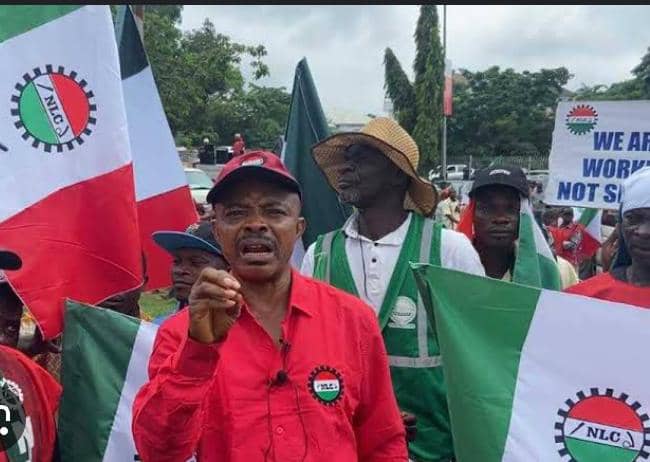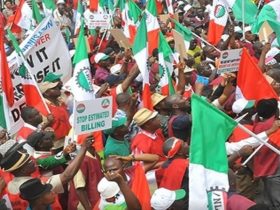Nigeria Labour Congress Announces Two-Day Warning Strike over Fuel Subsidy Removal
In a significant development, the Nigeria Labour Congress (NLC) has officially declared a two-day warning strike set to commence on Tuesday, September 5.
The strike has been called in response to the government’s perceived lack of action in addressing the myriad challenges stemming from the contentious removal of the fuel subsidy.
NLC President, Joe Ajaero, made this decisive announcement during a press conference held at the Labour House in Abuja on a tense Friday afternoon. Central to the NLC’s grievances is the assertion that the government has not only abandoned previous negotiations but has also failed to implement resolutions reached in prior discussions.
This impending strike comes on the heels of a nationwide protest organized just a month ago, which saw the NLC, in collaboration with the Trade Union Congress (TUC) and its affiliated unions, take to the streets across multiple states. The protests were a resounding denunciation of what was perceived as President Bola Tinubu’s anti-people policies.
Among the key demands voiced by the unions was the immediate reversal of these policies, as well as a substantial increase in the minimum wage from its current N30,000 to N200,000.
Of particular concern is the ongoing impasse in talks between the Presidency and the labor unions regarding the provision of palliatives for Nigerians adversely affected by the fuel subsidy removal. These discussions have thus far yielded no fruitful results, further intensifying the growing tensions.
Joe Ajaero, in recent days, has been a vocal critic of the government’s allocation of a mere N5 billion to states and the Federal Capital Territory (FCT) as a form of assistance.
He has openly questioned whether this allocation is intended as a loan or as genuine palliative relief. Ajaero argued passionately that such an amount would fall woefully short of alleviating the suffering endured by many Nigerians who have been pushed into poverty due to the sharp increases in fuel prices.
As the nation braces itself for the impending strike, the atmosphere remains fraught with uncertainty, with both the government and the NLC yet to find common ground on the pressing issues at hand.
The outcome of this strike will undoubtedly carry far-reaching consequences for the country’s socio-economic landscape.









Leave a Reply